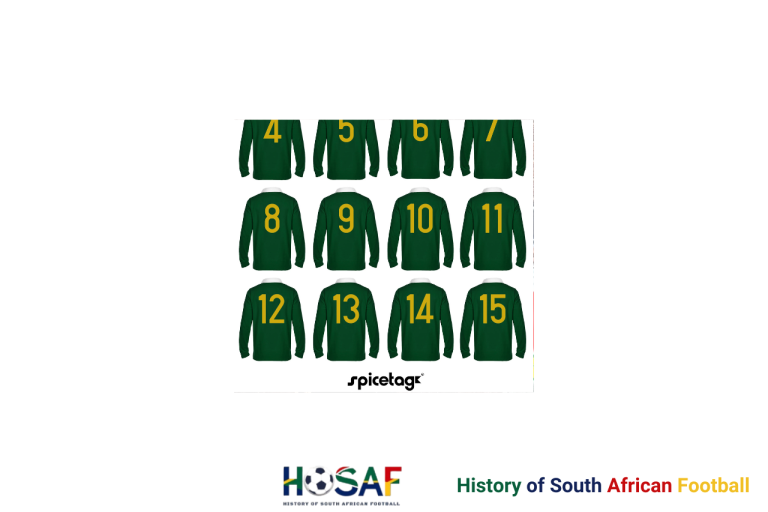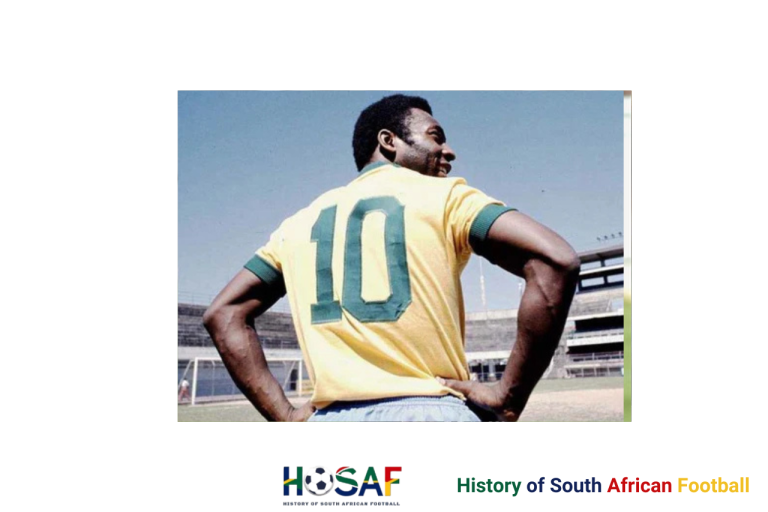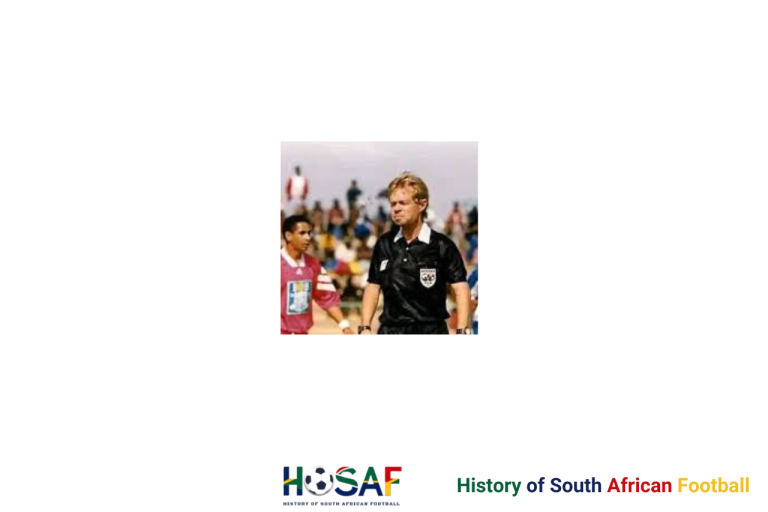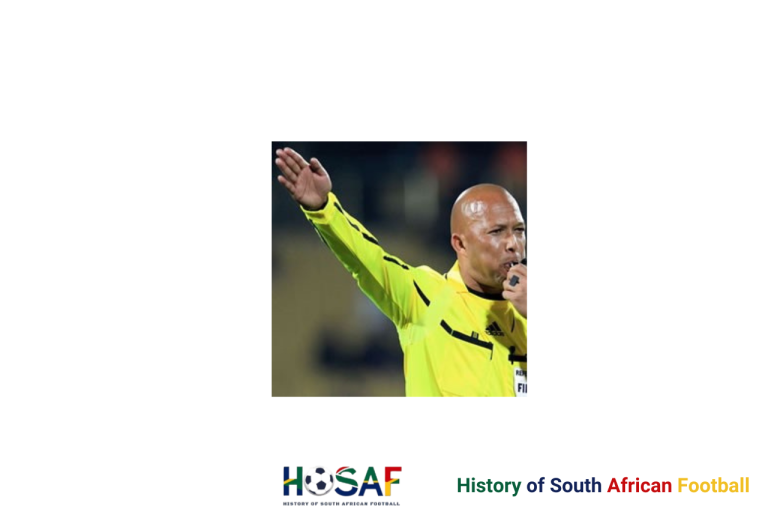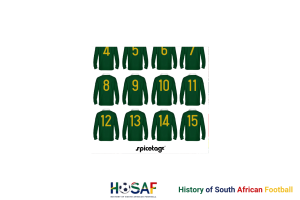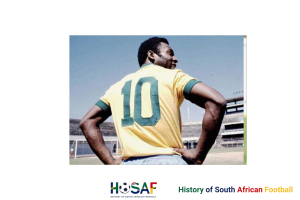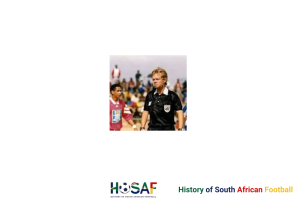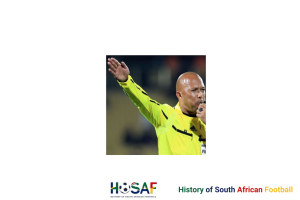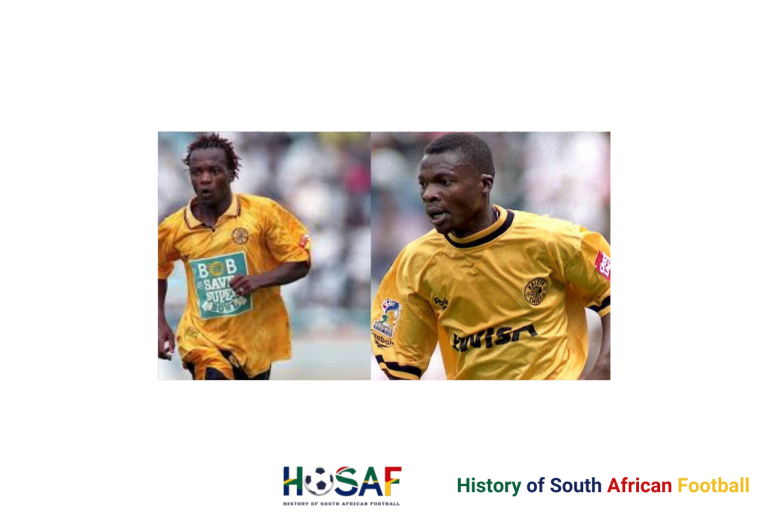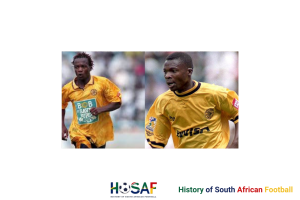
- 1. Name: Orlando Pirates Football Club
- 2. Founding Date: 1937
- 3. Owner/Chairman: Dr. Irvin “The Iron Duke” Khoza
- 4. Nicknames: The Buccaneers, EzikaMagebhula, Ezimnyama Ngenkani, Happy People
- 5. Slogan: “Once and Always”
- 6. Home Ground: Orlando Stadium, Soweto, Johannesburg (Capacity: ~37,000)
7. Achievements – Major Trophies
🏆 League Titles (Top Division)
- National Professional Soccer League (NPSL): 1971, 1973, 1975, 1976
- National Soccer League (NSL): 1994
- Premier Soccer League (PSL): 2000–01, 2002–03, 2010–11, 2011–12
🌍 Continental Titles
- CAF Champions League: 1995
- CAF Super Cup: 1996
- CAF Confederation Cup (Runners-up): 2015, 2021–22
🇿🇦 Domestic Cups
- Nedbank Cup (formerly Bob Save Super Bowl): 1973, 1974, 1975, 1983, 1996, 2011, 2014
- MTN 8 (formerly BP Top 8): 1972, 1973, 1978, 1983, 1993, 1996, 2000, 2010, 2011, 2020, 2022, 2023
- Telkom Knockout (formerly Coca-Cola Cup): 1983, 1996, 2000, 2011
- Carling Black Label Cup: 2011, 2012, 2014, 2020, 2022
8. Sponsors
- Main Sponsor:Orlando Pirates sponsors may vary annually, but in recent years:
- Main shirt sponsor: Vodacom
- Kit manufacturer: Adidas
- Other past sponsors include: Fruitree (1982), Alpha Cement (1990s), and Adidas (since the early 2000s)
9. Reputable Players (Legends & Icons)
- Jomo Sono – The “Black Prince” of South African football, key figure in 70s-80s
- Tebogo “Shakes” Mashaba – Legendary defender and later coach
- Jerry Sikhosana – Iconic striker known for Soweto Derby heroics
- Bennedict “Tso” Vilakazi – Midfield maestro of the modern era
- Lebohang Mofokeng – Long-serving captain and a symbol of loyalty
Origins and Founding (1937–1940s)
Key Figures: Sofasonke Mpanza, Baboon Shabangu, Bethuel Mokgosinyane, Andries Pele-Pele Mkhwanazi

Orlando Pirates Football Club, affectionately known as EzikaMagebhula or The Buccaneers, was established in 1937 in Orlando, Soweto. The formation of the club was born out of the energy of youth, the influence of politics, and the raw passion of township life.
Andries Pele-Pele Mkhwanazi, a boxing trainer and sports enthusiast, first encouraged young boys from the Orlando Boys Club to form a football team. The boys then broke away from the Orlando Boys Club to form the football team. They were dubbed the Pirates following this action that they took. That’s how the name came about. Mkhwanazi’s vision gave rise to a football movement that transcended the game itself.
Bethuel Mokgosinyane, a respected social worker, became the first president of the club. He gave the boys their first kit and built them a club house, using his woodwork skills. Mokgosinyane brought organizational structure and tied the club’s destiny to the broader aspirations of the oppressed black population in apartheid South Africa.
Sofasonke Mpanza, known as Magebhula, played a vital role in naming and shaping the club’s identity. Mpanza, who would later be known as the “Father of Soweto,” brought together football and politics, making Orlando Pirates more than just a sports club—it was a beacon for black urban identity and pride. The club’s name changed from Orlando Boys FC to Orlando Pirates in 1939, a nod to a rebellious, swashbuckling spirit that resonated with the struggles of the people.
II. Early Ascendancy and Community Leadership (1940s–1960s)
Patrons: David Motsamai
By the 1940s and 50s, Orlando Pirates had already become embedded in the cultural and political fabric of Soweto. David Motsamai, a political figure and activist whose name was later used as a pseudonym by Nelson Mandela, became a patron of the club. His stewardship helped solidify the team’s prestige without needing aggressive branding—Pirates’ reputation was earned on the field and reinforced by its social relevance.
Pirates’ supporters were more than spectators. They were activists, organizers, and protectors of the club’s image and legacy. A group of women supporters, famously known as the “Magnificent 7”, were instrumental in growing the club’s national footprint by opening branches across the country and playing critical roles in leadership elections.
III. The Golden Spark and the Kaizer Chiefs Split (1970–1976)
Major Events: Inaugural NPSL Victory, Formation of Kaizer Chiefs
The 1970s were a time of both glory and fragmentation. In 1971, Orlando Pirates became the first champions of the National Professional Soccer League (NPSL)—a historic milestone for black football in apartheid South Africa.
However, internal fractures emerged. Two of the club’s most talented players, Kaizer Motaung and Jomo Sono, broke away. Motaung decided not to return to the U.S. and instead formed Kaizer Chiefs, which became Pirates’ fiercest rival. Sono later founded Jomo Cosmos after failing to buy Orlando Pirates.
The breakaways were emblematic of deeper issues—players wanted better financial control and recognition. The Pirates committee rejected attempts by players like Sono and Shakes Mashaba to buy the club, a decision which arguably lost the team some of its brightest stars.
IV. Decline and Fan-Led Rebellion (1977–1993)
Leadership: Bobby Makwetla → John Mabaso → Sixty Mali → Irvin Khoza
Fan Involvement: Militant Action, Stadium Violence, Political Turmoil
This period is marked by internal instability, violent supporters reactions, and declining performances.
After their 1976 league win, Pirates fell into a deep slump. From 1977 to the early 1990s, the club suffered mid-table mediocrity, finishing as low as 15th in 1985, barely avoiding relegation.
This era also coincided with the most politically charged years of apartheid, especially in Soweto. Supporters turned militant. They stormed training sessions, attacked referees, and engaged in pitch invasions. Several matches ended in chaos—including the 1983, 1984, and 1988 Ellis Park Stadium incidents, with multiple injuries and even fatalities.
The transition from the NPSL to the NSL in 1985 further destabilized the league. Factional differences resulted in an infamous incident where two separate Orlando Pirates teams showed up at Ellis Park, leading to the stabbing of the club supporter, China Hlongwane.
Photo of China Hlongwane stabbing . Newspaper Clip Provided by Pule Jakkals:


Despite this chaos, strong supporters like Zola Mahobe, who owned Mamelodi Sundowns but was a Pirates fan, sent players to help. Pirates fans were known to take matters into their own hands—if the team wasn’t winning, they acted, sometimes violently, to correct what they saw as mismanagement.
V. The Rise of Irvin Khoza and Return to Glory (1994–2000)
Key Leader: Dr. Irvin “The Iron Duke” Khoza
Historic Achievements: League Title (1994), CAF Champions League (1995)

The 1990s were transformed by Dr. Irvin Khoza, who took over the reins after failing to acquire Mamelodi Sundowns. Under his sharp, business-savvy leadership, Orlando Pirates entered a golden era.
In 1994, after 16 years without a league title, Pirates were controversially crowned champions due to points deduction from Vaal Professionals. Some critics questioned the legitimacy, but fans embraced the win as long-overdue justice.
The peak came in 1995 when Pirates won the CAF Champions League, becoming the first South African club to do so. This achievement not only cemented Khoza’s legacy but brought continental glory to South African football.
Khoza also professionalized the club, rebranding Pirates as a modern, media-savvy organization while still rooted in township culture.

Provided by Styles Ledwaba.
VI. Modern Era and the “Happy People” Identity (2001–Present)
Achievements: Domestic Cups, Global Recognition, Revival of Legacy
Supporters: Loyal, Demanding, Ever-Present
Since the 2000s, Orlando Pirates has maintained a high-profile presence in South African football. The club has won multiple domestic trophies and continues to draw massive crowds—especially for the Soweto Derby against Kaizer Chiefs.
Under Khoza’s continued leadership, the club balances tradition with modernity. Pirates supporters—now known as the Happy People—remain some of the most passionate and demanding in the league. Even victories are scrutinized; fans expect style, pride, and dominance.
Pirates fans have always been central to the club’s identity. From the political organizers of the 1940s, the riotous factions of the 1980s, to the social media-driven diehards of today—they are the heartbeat of the club.

Legacy and Meaning
Orlando Pirates is not just a football club—it is an institution. It represents:
- The struggles of black South Africans under apartheid
- The power of community and supporter influence
- A legacy of resilience, revival, and cultural pride
The Buccaneers have outlasted economic crises, political repression, internal division, and violent supporters eruptions. Through it all, they’ve remained symbols of black pride, working-class triumph, and unbreakable spirit.
Conclusion: Once and Always
From Sofasonke Mpanza’s founding days to Irvin Khoza’s global ambitions, Orlando Pirates’ story is South Africa’s story—a tale of vision, hardship, division, and redemption. Through decades of political oppression, factional battles, and glorious comebacks, the Pirates remain EzikaMagebhula—the ones who carve their own destiny.



